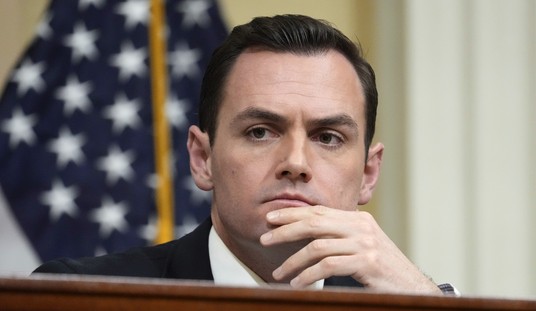This morning’s Gospel reading is Matthew 24:37–44:
Jesus said to his disciples:
“As it was in the days of Noah, so it will be at the coming of the Son of Man. In those days before the flood, they were eating and drinking, marrying and giving in marriage, up to the day that Noah entered the ark. They did not know until the flood came and carried them all away. So will it be also at the coming of the Son of Man. Two men will be out in the field; one will be taken, and one will be left. Two women will be grinding at the mill; one will be taken, and one will be left. Therefore, stay awake! For you do not know on which day your Lord will come. Be sure of this: if the master of the house had known the hour of night when the thief was coming, he would have stayed awake and not let his house be broken into. So too, you also must be prepared, for at an hour you do not expect, the Son of Man will come.”
Not long ago, someone grumbled to me about the early arrival of Christmas music and decorations. Usually we wait until after Thanksgiving to start enduring Christmas advertising and jingles, including Jingle Bells, but this complaint came before Halloween. The naked avarice behind advertising campaigns looking to exploit the Christmas season is sufficient to transform even the cheeriest person into a version of Ebenezer Scrooge, but the offense is broader than that. It feels like an attempt to rush into a season in order to rush out of it, and challenge time itself. Why can’t we allow the seasons to turn on their own?
That’s a good question on the first day of Advent, and in light of today’s Gospel reading, too. Advent is the season for preparation for salvation, in which we celebrate the birth of Christ. Those scenes are quite familiar to us — the manger, Bethlehem, the shepherds in the field, and the three wise men that surround the Holy Family in our creches. Very soon, our readings will take us through all of those familiar stories, starting with the Annunciation and all the way through Jesus’ blessing in the Temple and Simeon’s declaration.
Rather than start the season there, though, we begin with a scene that takes place much later in the Gospel. In this passage from Matthew, Jesus offers a vision (rather than a parable) that speaks to the futility of forcing time to speed up, and of losing one’s self completely in revelry. No one will know the date and time of the end of the world as we know it, Jesus warns, and those who find themselves unprepared will regret it.
This is clearly a teaching about salvation and the need to remain faithful, but it is also a reminder of time and its use in God’s plan. “At an hour you do not expect,” Jesus warns His disciples, “the Son of Man will come.” That is an explicit warning for preparation, but it is also an implicit instruction to refrain from watching the clock or attempting to force the issue. If you cannot know when the hour will be, why keep marking time? Have faith in the Lord and live according to His precepts.
But what is that hour of which Jesus speaks, and for what are we preparing? The coming of the Son of Man, of course, but what does that mean? Our reading from Isaiah 2 tells of God’s plan for Jerusalem and all the nations:
In days to come, the mountain of the LORD’s house shall be established as the highest mountain and raised above the hills. All nations shall stream toward it; many peoples shall come and say: “Come, let us climb the LORD’s mountain, to the house of the God of Jacob, that he may instruct us in his ways, and we may walk in his paths.” For from Zion shall go forth instruction, and the word of the LORD from Jerusalem. He shall judge between the nations, and impose terms on many peoples. They shall beat their swords into plowshares and their spears into pruning hooks; one nation shall not raise the sword against another, nor shall they train for war again.
What makes this so notable is its timing. Isaiah’s prophecy took place three centuries after David’s reign, when Jerusalem had already been established as the capital of Israel and the seat of the Temple. Shortly after this, the northern kingdom would fall to the Assyrians; a century later, the exiles of the southern kingdom of Judah would begin, and the temporal city of Jerusalem would fall. Centuries later it would fall again and be crushed by empires for the next two thousand years.
We can assume, then, that Isaiah sees a different Jerusalem — one to come, and one in which all nations find rest. This prophecy describes the victory of God over sin and the welcoming back of His children to a perfected Jerusalem, one which fulfills its original mission. The Lord established Israel as a nation of priests to instruct the world on His law, and Jerusalem as the seat of His power where nations would come for that instruction. Instead, the Israelites turned their capital and their nation into a temporal power; rather than instruct the nations, they allowed other nations to corrupt them with idolatry and sin.
That mission passed from Jerusalem and the Israelites to a different entity — the church which Jesus founded. Rather than establish a city where the nations come to receive instruction, the church becomes an arm of the new Jerusalem which goes out to all nations to proclaim God’s Word. It is yet another step in God’s plan for salvation, and Jesus Christ offers the church to the world in order for all nations to prepare for the arrival of the perfected Jerusalem: life everlasting in the presence of the Lord.
This is the Advent for which we prepare in this season. We do not just celebrate Christ’s birth, although we certainly do that as part of Advent. We celebrate His birth in order to prepare for the completion of God’s plan for salvation. In his letter to the Romans, Paul urges that church to awaken to this Advent. “It is the hour now for you to awake from sleep,” Paul writes. “Let us then throw off the works of darkness and put on the armor of light.”
We do not know the hour and time of the arrival of the new, perfected Jerusalem. We cannot speed up the seasons to make it arrive. We can, however, begin now to prepare ourselves for the coming of the Son of Man rather than remain asleep at the switch in order to make ourselves ready to join our Lord in the heavenly Jerusalem to come. If we keep our focus on that, then suddenly those annoying ad campaigns and jingles don’t seem too terribly important at all.
The front page image is a panel from the Apocalypse Tapestry of Angers, France, late 14th century, on display at the Chateau d’Angers.
“Sunday Reflection” is a regular feature, looking at the specific readings used in today’s Mass in Catholic parishes around the world. The reflection represents only my own point of view, intended to help prepare myself for the Lord’s day and perhaps spark a meaningful discussion. Previous Sunday Reflections from the main page can be found here. For previous Green Room entries, click here.








Join the conversation as a VIP Member